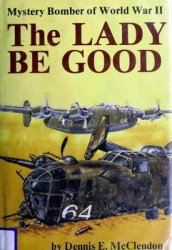But why was Kiev different? Like Odessa and Warsaw, it had its Jewish writers: Sholem Aleichem and the Hebrew poet Yehudah Leib Levin both spent significant time there. Like St. Petersburg, it had its illustrious Jewish plutocrats: the Brodsky family was known throughout the empire and even had marriage connections with the "noble" Gintsburg family of the capital. Like Odessa, it had its famous Jewish Zionists: Max Mandel’shtam even served as the model for Dr. Eichenstam, president of the Hebrew Commonwealth in Herzl's Der Judenstaat. And like Vilna, Kiev had a (somewhat) illustrious Jewish pedigree, boasting the presence of Jewish scholars as early as the twelfth century. Was Kiev Jewish? Or was it the epitome of a Russian city, indeed a veritable "non-Jewish" city, if there could be such a thing? As we shall see, one of the central tensions that Kiev Jews and non-Jews expressed about their city throughout the tsarist period was the extent to which it was, if at all, a Jewish city. Starting from the first decades of Jewish settlement, residents and visitors found that Kiev was becoming an increasingly Jewish city, not only in sheer numbers but also in its very character; those hostile to Jews even claimed that the latter were intent on "conquering" Russia's holiest city. But as it became more and more "Jewish," Kiev became ever more inhospitable to Jews. Many if not most of the Jews in Kiev lived in constant fear of arrest and expulsion simply for not being in possession of the proper papers that would allow them residence in the city. As the influence of Russian nationalists in the city grew, so did the role of antisemitism: from hateful but empty threats to the violence of the 1905 pogrom to the almost constant specter of pogroms in subsequent years. Of one thing there could be no doubt: Kiev was an imperial city, a place where numerous ethnic and religious groups falling under the umbrella of the great Rossiiskaia imperiia met and mingled.
This book will not attempt to argue that the dominant culture of Kiev was actually a secularized Jewish culture, as has been argued for other cit-ies.26 It will, however, claim that the Jewish presence there was one that had a palpable impact on the character and profile of the city in a way that epitomized the tensions in the uneasy relationship between the Russian Empire's Jews and imperial society. Though Jews were but tolerated strangers in Kiev, they influenced—indeed shaped—the city to a remarkable extent. The fact that by the turn of the century urban Jews were such a visible and inextricable strand within the tapestry of that society makes an exploration of their experience in the city even more important. As was true for the empire as a whole, Jews played a central role in the economy of Kiev and most agreed that the city could not do without them and even owed to them much of its spectacular growth in the final decades of the nineteenth century and first decades of the twentieth. Yet as integrated as they were into the fabric of the city in some ways—and a good number were fully acculturated into Kiev's urban Russian milieu—in other respects they continued, nolens volens, to live apart—a problem that continued to vex the intelligentsia and the bureaucracy alike. As Harriet Murav has demonstrated, the very act of acculturation provoked anxiety among ethnic Russians because it destabilized the idea of Russianness: if a Jew could speak Russian well enough and become sufficiently acquainted with imperial Russian (rossiiskii) culture to pass for an ethnic Russian (russkii), then how could one continue to define Russian? It is no accident that Sholem Aleichem set half of his tragicomic farce The Bloody Hoax in Kiev: the city was the perfect setting for a tale of a Christian pretending to be a Jew. The total lack of familiarity with Yiddish and Jewish customs exhibited by the Christian student Popov masquerading as the Jewish student Rabinovich is—at least at first—put down by the Jewish family with which he boards to extreme assimilation. And perhaps Sholem Aleichem chose to set the second half of the novel, in which the Jewish student pretends to be an Orthodox Christian, in Moscow to heighten the dramatic tension of the plot—for a Jew pretending to be a Christian in Kiev was quite an ordinary occurrence.




 World History
World History









